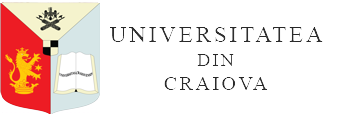Other European programmes
Tempus IV
Tempus is an EU programme, whose implementation is, currently, in the fourth stage, which covers 2007-2013 (Tempus IV).
Tempus IV programme’s overall aim is to facilitate cooperation in higher education between EU member states and partner countries in the area. It contributes especially to promote voluntary convergence of higher education systems in partner countries with development in European higher education.
Tempus projects’ aim is to promote multilateral cooperation between higher education institutions, authorities and organizations of the EU member states and partner countries and focuses on the reform and modernization of higher education.
Tempus funds two types of actions:
1) Joint projects are based on multilateral partnerships between higher education institutions in the EU and partner countries. They can develop, modernize and disseminate new teaching methods or materials, can develop curriculum content, etc. The countries can also boost a quality assurance culture and modernize the management and administration of higher education institutions.
2) The structural measures contribute to the development and reform of higher education institutions and systems in partner countries, the improvement of the quality and relevance, and the increase of their convergence with the developments in Europe.
In Tempus IV national and multinational projects can be financed: National projects must obey national priorities which are established in close dialogue between European Commission delegations and the relevant authorities in the partner countries. Multinational projects must comply with regional priorities which are based on community policy of cooperation with partner countries.
Project proposals that pass the external assessment and that obtained the highest scores after those consultations with the ministries of education, EU Delegations and national Tempus offices are proposed for funding.
Project proposals should be written in English, French or German, using an electronic form specifically designed for this purpose, which is available on the website of Education, Audiovisual and Culture Executive Agency (EACEA).
The Tempus projects are implemented by consortia made up of universities or associations of universities. The consortia may also include non-academic partners: companies (public or private), professional associations, public authorities at local, regional and national level, social partners etc.
A consortium must meet the following requirements:
It includes at least two institutions from two EU Member States;
Each participating country (Member State or partner) must be represented by at least one university in the consortium;
For Structural and Complementary Measures, the Ministry of Education should officialy support the project proposal or be part of the consortium.
The information was taken from the website: http://www.tempus.md/
For more details, visit the website of Agentiei Nationale pentru Programe Comunitare in Domeniul Educatiei si Formarii Profesionale (ANPCDEFP).
ERASMUS Mundus
Erasmus Mundus is a cooperation program aimed at developing the quality of European higher education and its promotion worldwide. Building on the success of Erasmus (best known through mobility grants provided to students), Erasmus Mundus encourages collaboration between higher education institutions, teachers, students and researchers from EU and outside it.
The program is administered by the Executive Agency for Education, Audiovisual and Culture, under the supervision of the European Commission. In each participating country there is a national structure information and support to potential applicants and beneficiaries of the Erasmus Mundus program.
Within the program, coordination can be handled by the EU Member States, EFTA/EEA (Iceland, Norway and Lichtenstein), Turkey, the Western Balkans (Albania, Bosnia Herzegovina, Croatia, Kosovo, FYR Macedonia, Montenegro, Serbia) and Switzerland and participant (partner) may be any other state.
Erasmus Mundus supports cooperation and mobility of students and university teachers in higher education institutions in the EU and third countries and aims to promote the quality and attractiveness of European higher education worldwide, opening to third countries and facilitating intercultural dialogue.
Erasmus Mundus develops the following actions:
Action 1 Joint programmes
- joint masters courses (1A) or joint doctoral programs (1B)
- grants and periods of teaching/research associated with these programs implemented by EU and non-EU universities
Action 2 Partnerships
(Ex-External Cooperation Window)
- institutional partnership projects with non-EU universities
- grants for students and academic staff
Action 3 Promoting European higher education
- Projects for developing attractivity
- Studies
- Projects addressed to the national structures EM etc.
Within the Erasmus Mundus programme support is provided for the creation of quality MA and PhD programs, the implementation and conduct to which may participate teachers, researchers and students from Europe and partner countries, and for developing university partnerships between institutions in Europe and third countries.
Within the program can be offered grants for students (Europeans or non-Europeans) who want to pursue masters and doctoral programs conducted as part of an Erasmus Mundus project, as well as for researchers from third countries who want to spend a period of study/research in one or more European universities. Also, European teachers and researchers can benefit from teaching / training / research internships in universities in third countries.
The program has a total budget of EUR 470 million for Actions 1 and 3 and € 460 million for Action 2, between 2009 and 2013.
Who can participate?
• Higher education institutions – can apply and participate within all the actions of the programme, based on criteria published annually in the Call for proposals; they are sent directly to the Executive Agency for Education, Audiovisual and Culture, under the conditions mentioned in the form.
• Other active organizations in higher education – may submit applications under Action 3 and can participate (as partners), in the Actions 1 and 2.
• University teachers and researchers – can participate in teaching/research internships within Actions 1 and 2.
• Students – can be selected for periods of mobility within Actions 1 and 2. Each university consortium defines its own criteria for granting scholarships procedures and deadlines for individual applications.
The information was taken from the site llp-ro.ro.
You can find more information on the ec.europa.eu.






